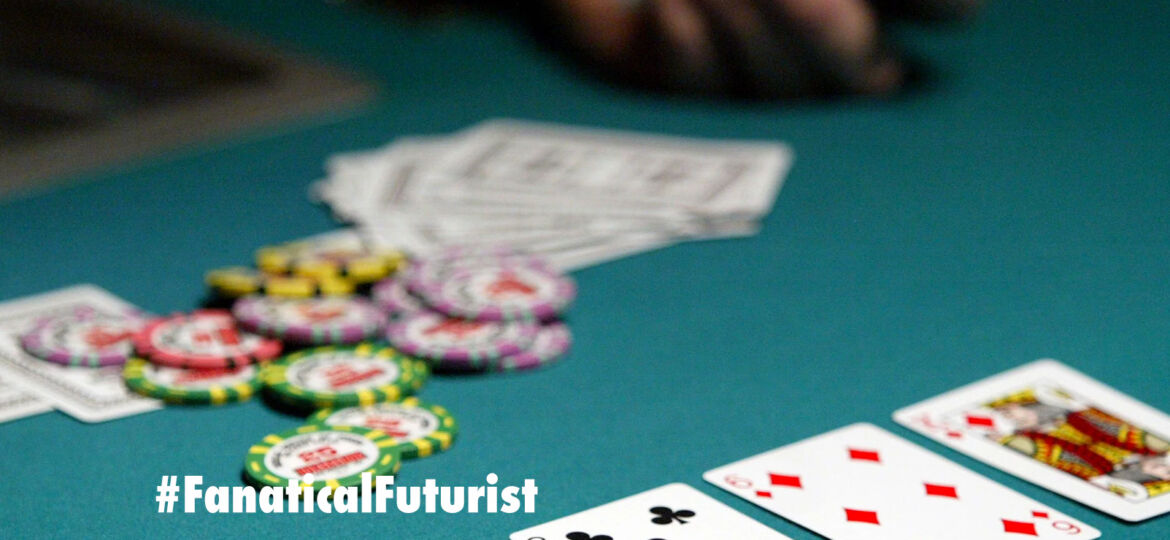
WHY THIS MATTERS IN BRIEF
AI researchers are famous for training their AI’s to master all sorts of games, from Go to Starcraft, and while at first it looks like just a bunch of fun there are often real world implications.
Thanks to the team at PokerSites for reaching out and sending through this infographic and timeline of AI in Poker, something I’ve covered a number of times in my blog. It’s also worth noting here that while an AI, like Liberatus, mentioned below, that can beat the world’s best human Poker players, to take a $1.7million pot, might at first look like a PR stunt, as many of you will know, Poker is a game of bluff, and in matter of fact what’s really happening here is that AI researchers are using Poker as a way to teach their AI’s to become better at negotiating and bluffing – and that’s the real world application. Think sales, think law, think pretty much any business environment and you should get the idea.
Enjoy the read and the infographic, and remember, AI’s don’t have a Poker face, Matt.
Artificial Intelligence (AI) systems in general are breaking record after record against humans, surpassing the us in a number of arenas, such as chess, poker, driving, predicting crime and making medical diagnoses, among others, and it looks like the era of the machines is coming to hold a victory over human beings! Just kidding!
Getting back to our main topic, I shall present some of the facts assembled by PokerSites that everyone should know when it comes to poker and AI.
Developed initially by Carnegie Mellon University, the Liberatus AI recently proved it can already beat humans in a good game of Poker, and to this end, it is important to note that back in 1997 the IBM AI Deep Blue managed to win in a chess game, holding victory over the world champion Garry Kasparov.
Over the last couple of decades AI has developed significantly and AI systems, such as the Google AlphaGo AI, have secured a number of historic wins over the world’s best Go player Lee Sedol.
Poker and AI are hence gaining popularity among people: 62% of millennials aged 17-24 truly trust various AI systems, while there are only 34% aged 55 or higher who have a liking for AI, whereas another 71% aged 50 and more believe AI assistants will eventually simplify and improve life in the future.
Below is the timeline of Poker Al success. It was launched in 1984, the year when the basic Poker AI Software Orac was created by Mike Caro. It was designed to compete in WSOP.
Later, in 1997 UoA released Loki-poker AI focused on Limit Hold’em variation. And recently, back in 2003, Poker AI developers took it to another level, by shifting from the Chess Methodology Model.
In 2006 the series of developments were followed by the kickoff Annual Computer Poker Competition (ACPC).
Have a look at the infographic online or below to learn about further developments of Poker AI.

















